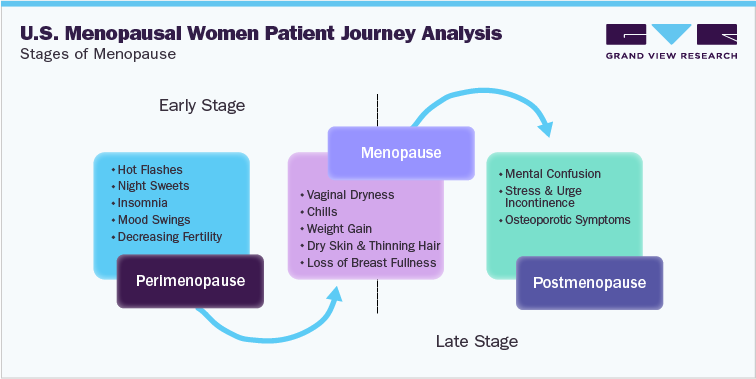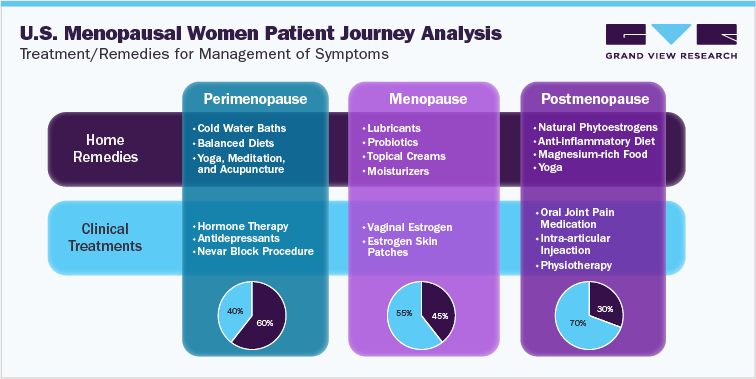Women’s Preferences for the Management of Symptoms
Initially, to help ease the symptoms, women prefer natural remedies such as cold-water baths and the consumption of a nutritious & balanced diet, such as plant products containing phytoestrogens, licorice root, valerian root, evening primrose oil, and black cohosh. Many women also practice breathing exercises, yoga, meditation, tai chi, and acupuncture to reduce the frequency of hot flashes & night sweats. If natural remedies provide no relief, women prefer seeking medical attention. A majority of healthcare providers prescribe oral or transdermal menopausal hormone therapy as it is the most effective treatment for hot flashes & night sweats.

However, women are reluctant to choose hormone therapy owing to the high cost associated with the treatment. Moreover, rising awareness regarding the adverse events associated with the therapy, such as the risk of breast cancer, deep vein thrombosis, vaginal bleeding, breast tenderness, weight gain, and high blood pressure, has led menopausal women to shift toward safer alternatives. According to a survey conducted by Forbes, 72% of women were familiar with menopausal hormone therapy in the U.S. In addition, around 61% agreed to consider hormone therapy after the availability of a new clinical study assuring the safety of the treatment.

Factors influencing patient treatment decisions are usually experience and advice from family or friends, lifestyle, and patient perceptions about insurance coverage and risk. In addition, the lack of available information regarding the treatments for menopause management is contributing to the hesitant behavior of women about menopausal symptoms. According to a survey by KFF Women’s Health Survey in 2022, around 19% of women in the premenopausal stage, 39% of menopausal women, and 42% of postmenopausal women state that their healthcare provider has ever interacted with them regarding what to expect during menopause.
Overall Expenditure Analysis Incurred by Perimenopausal and Menopausal Women
|
Treatment
|
Average Price/Unit (USD)
|
Average Annual Expenditure
|
|
Natural Remedies
|
20
|
115
|
|
Diagnosis Kits
|
99
|
198
|
|
Hormonal Prescription Medicines
|
188
|
1,255
|
|
Non-Hormonal Prescription Medicines
|
52
|
640
|
|
Physician Consulting Fee
|
62
|
248
|





